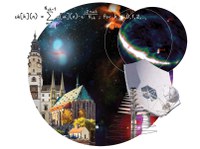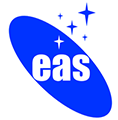The Future of Radio Astronomy
From 16 to 20 June 2025, the beautiful town of Görlitz in Germany, will be the focal point of international astrophysical research when it hosts the SKAO Science Meeting 2025. This major conference will bring together over 500 scientists from across the globe to discuss the next steps in preparing for early science with the Square Kilometre Array Observatory (SKAO), the world’s most ambitious radio telescope project.
The conference marks the largest in-person SKAO science meeting to date, and is also one of the largest international astronomy conferences ever held in Germany. Organised under the theme “A New Era in Astrophysics: Preparing for Early Science with the SKAO”, the event will take place at the Gerhart-Hauptmann-Theater in Görlitz.
The SKA, currently under construction in South Africa and Australia, will be the largest radio telescope array ever built. It will seek answers to questions about the origin of the universe, dark matter and dark energy, the cosmic web and the potential existence of extraterrestrial life. The Görlitz meeting is a significant step towards the start of early science operations, which are expected to begin later this decade.
Germany is a founding contributor in the international project consisting of twelve countries. The German Centre for Astrophysics (DZA), which is currently being founded, and the Max Planck Institute for Radio Astronomy (MPIfR) are supporting the SKAO. In 2025, the SKA will be featured prominently in the AG’s upcoming Decadal Plan (Denkschrift), a strategic vision paper coordinated by the German Astronomical Society (Astronomische Gesellschaft, AG) and its Council of German Observatories (Rat Deutscher Sternwarten, RDS). In parallel, Germany’s Roadmap application to secure federal funding for SKA involvement is under review. Hosting this high-profile event highlights Germany’s commitment to global scientific leadership and strengthens its visibility within the SKA partnership.
The conference will feature more than 200 scientific presentations across eight core thematic areas, including galaxy evolution, cosmology, gravitational waves, and the search for habitable worlds. Internationally renowned keynote speakers will discuss the SKAO’s role in cosmology and dark energy, on pulsars and fundamental physics, cosmic magnetism and the potential for detecting life-hosting exoplanets with SKA technology.
To engage the general public, the conference will include a series of outreach activities. On the evening of 19 June, Prof. Dr Michael Kramer will give a public lecture in German entitled 'Das geheimnisvolle Universum' at the Gerhart-Hauptmann-Theater. Through interactive presentations, it will offer the general public insights into the invisible universe. Educational events and school workshops in Görlitz and Zgorzelec will complement the main conference programme.
Media representatives are invited to attend the SKAO Science Meeting 2025. Accredited journalists will have access to keynote sessions, press briefings, and interviews with leading scientists from Germany and abroad. A media desk will be available on site, providing information materials, visuals, and coordination support.
For press accreditation or to arrange interviews, please contact:
Deutsches Zentrum für Astrophysik (DZA)
Stephan Witschas
E-Mail: medien-dza@dzastro.de
Programm and further information:
https://www.skao.int/en/science-users/skao-science-meeting-2025
Contacts:
Deutsches Zentrum für Astrophysik (DZA)
Stephan Witschas
E-Mail: medien-dza@dzastro.de
SKA Observatory
Cassandra Cavallaro
E-Mail: cassandra.cavallaro@skao.int
+447384 511285
Max-Planck-Institut für Radioastronomie
Dr Nobert Junkes
Email: njunkes@mpifr-bonn.mpg.de
+49-228-525-399
German Astronomical Society
Dr Janine Fohlmeister
pressofficer@astronomische-gesellschaft.de
+49 331 7499 802




